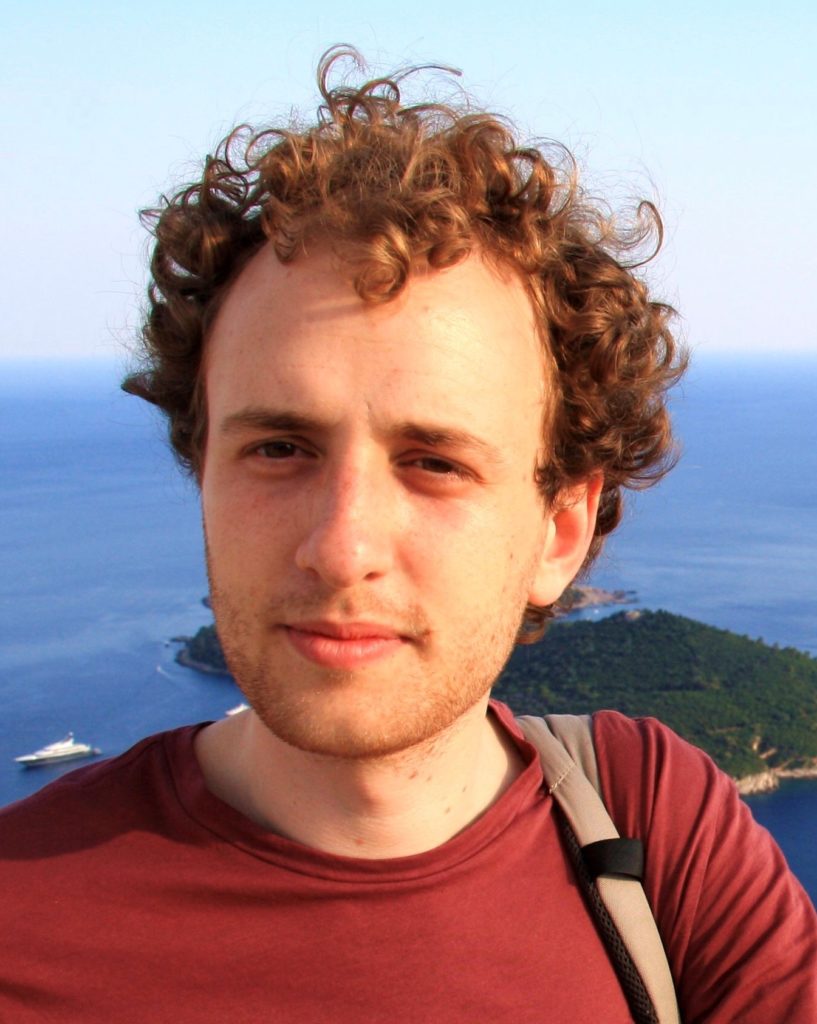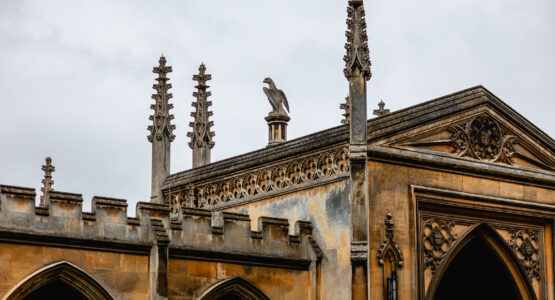The Edward Showler Foundation launches Clear Cell Sarcoma Research Programme
Alumnus Dr Edward Showler (‘Ed’)(2007) died at the age of 28 from clear cell sarcoma. The Edward Showler Foundation has just launched a new programme of pioneering research into the cancer.
Ed studied medicine at St John’s, graduating in 2013. As a doctor he worked at the John Radcliffe Hospital in Oxford, the Royal Berkshire Hospital in Reading and University College Hospital in London.
He had begun training at the Royal Free Hospital in Hampstead in 2016 to become a consultant haematologist. In September 2016 Ed was diagnosed with a rare cancer, Clear Cell Sarcoma, for which there is no effective treatment. The Edward Showler Foundation was set up by Ed’s family and friends with the aim to make a difference to young people, like Ed, who have been affected by Sarcoma and particularly Clear Cell Sarcoma and to fund research in his name.
The Foundation has forged a philanthropic partnership with University College London to create the Edward Showler Foundation Clear Cell Sarcoma Research Programme, a four-year initiative led by Dr Nischalan Pillay (Sarcoma Biology and Genomics Group Leader and Honorary Consultant Histopathologist) and supported by Dr Sandra Strauss (Senior Clinical Lecturer and Honorary Consultant Medical Oncologist) at UCL Cancer Institute.

Clear Cell Sarcoma (CCS) is a sub-type of sarcoma that usually arises near tendons, especially in the feet and hands. It primarily affects young adults between 20 and 40 years old and the prognosis is poor in comparison to other cancers. At present, no effective medical treatments for CCS exist due to the historical lack of research focusing exclusively on the disease. The cancer usually proves resistant to existing drugs and therapies, which have been used to successfully treat or halt the progression of other cancers.
The Edward Showler Foundation Clear Cell Sarcoma Research Programme will take a fresh approach to studying the disease, with the aim of fuelling much-needed research progress. Using tissue samples donated by patients and stored at national biobanks, including the UCL/UCLH Biobank for Studying Health and Disease, the researchers will employ the latest genome-sequencing technologies to uncover the genetic mechanisms that cause CCS to develop and grow.
Over the next four years, the programme will also draw upon the world-leading expertise of UCL’s partner hospitals, including the London Sarcoma Service (at UCLH and RNOH) to consent new and existing patients with CCS who wish to participate in the programme’s research.
Through this work, the team hopes to gain a comprehensive understanding of the genomic landscape of CCS and improve knowledge of both the disease’s progression and its resistance to conventional treatments. They will then apply their findings to clinical trials with the aim of identifying new and effective avenues for treatment.
“We are excited by the proposed research programme at UCL, which will bring much needed understanding to the genetic causes and drivers of clear cell sarcoma, and will hopefully be of benefit to future patients who are diagnosed with this terrible disease,” said John and Ellie Showler – Ed’s parents, and founders and trustees of the Edward Showler Foundation.
“As a doctor, Ed firmly believed in the potential of pioneering medical treatments to improve the lives of his patients. In combining cutting-edge research techniques and approaches, the Edward Showler Foundation Clear Cell Sarcoma Research Programme represents a fitting tribute to his life, work, and vision.”
You can read Ed’s obituary published in the 2018 Eagle here. Read more about the Edward Showler Foundation.




